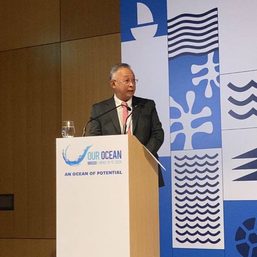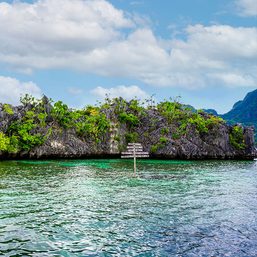SUMMARY
This is AI generated summarization, which may have errors. For context, always refer to the full article.
![[OPINION] What are you prepared to give up?](https://www.rappler.com/tachyon/2020/10/imho-tepid-water-analogy.jpg)
The analogy of the frog in hot water tells us the dangers of complacency, and the failure to react decisively to imminent existential threats. When a frog was thrown into a pot of boiling water, it decisively jumped out for its survival. However, when a frog was placed in tepid water that was brought slowly to a boil, it adapted to the water temperature until it was too late to take the ultimate leap of escape.
Are we not like frogs in tepid water when it comes to our climate crisis response? Denial in the face of compelling scientific evidence and lived experiences is both irrational and counterproductive.
First, as we confront the COVID-19 pandemic, ecologists warn that if we want to prevent future outbreaks, we must protect nature, as human incursion into previously untouched ecosystems increases the risk of future disease outbreaks.
Second, the World Economic Forum report this year highlighted the rapid collapse of biodiversity as a threat to life on the planet. The First Law of Ecology clearly states that “everything is connected to everything else.” Thus, the loss of species will gravely impact the interdependence and interrelationships within the whole system.
Third, this unprecedented depredation has turned nature into a loaded weapon. Think of extreme weather conditions, heatwaves, rising sea levels, drought and famines, and the increased occurrence of natural disasters. It’s been 30 years since the publication of the Brundtland Report which emphasized intergenerational equity, but it seems that the concept is still only wishful thinking.
Despite the adoption of Sustainable Development Goals, our current trajectory shows that we may fall short in averting an environmental catastrophe. Thus, the argument of young activists in joining the climate strike is strikingly profound. How can young people be busy preparing for our future when there might be no “future” for us in the first place? This day calls on everyone to be an advocate for climate justice to prevent a tragedy of the commons.
However, when we advocate for nature, we also need to ponder on 3 important points. First, we cannot save the future and still expect to use the same system that put this future in danger to begin with.
Second, any meaningful environmental activism is not only virtual. Social media platforms, although pivotal, should open meaningful spaces for actual and active engagement. Malcolm Gladwell articulated his critique on social media activism or “slacktivism” as low-level engagement devoid of serious commitment.
Finally, Wendell Berry reminds us that “a protest meeting on the issue of environmental abuse is not a convocation of the accusers, it is a convocation of the guilty.” We need to accept our part in this problem.
In basic economics, we have the law of supply and demand. It is critical to push our governments into action to cut the supply side of depredation, but any climate action would be empty if it is not met on the demand side. The ultimate question is, are we prepared to give up some of our conveniences? As long as there is a huge demand from the population, market forces will supply that need, and governments, in need of revenues, often prefer non-intervention. Thus, rectification of the system also requires a fundamental change in our consumption culture, especially its wastefulness. It is in asking less from nature today that we can fulfill our generation’s responsibility to ensure that we and our posterity will live in peace, not crisis.
Environmental protection and sustainability means that we must also be prepared to give up some of our pleasures and conveniences. Walk a little longer. Grow some food or buy them from local farmers. Cook for yourself instead of depending on fast food restaurants. Enjoy a moment of solitude appreciating nature. Patronize sources that observe environmental ethics. Develop a simple way of living. The ultimate goal is to lessen our ecological footprint. We cannot cut directly the supply of depredation without fewer demands. Meaningful environmental activism should be found in one’s lifestyle.
The philosopher and naturalist Henry David Thoreau once quipped, the real measure of wealth is not on the things that we have, but those we can afford to let go. Let us all take small leaps before it is too late. – Rappler.com
Tobit P. Abao is taking a Masters in Public Administration student at the Mindanao State University-Iligan Institute of Technology. He is also the Philippine Representative for the PeaceX organization.
Add a comment
How does this make you feel?
![[OPINION] A letter to all 20-somethings in 2020](https://www.rappler.com/tachyon/2020/10/dear-20somethings-640.jpg?fit=449%2C360)





There are no comments yet. Add your comment to start the conversation.